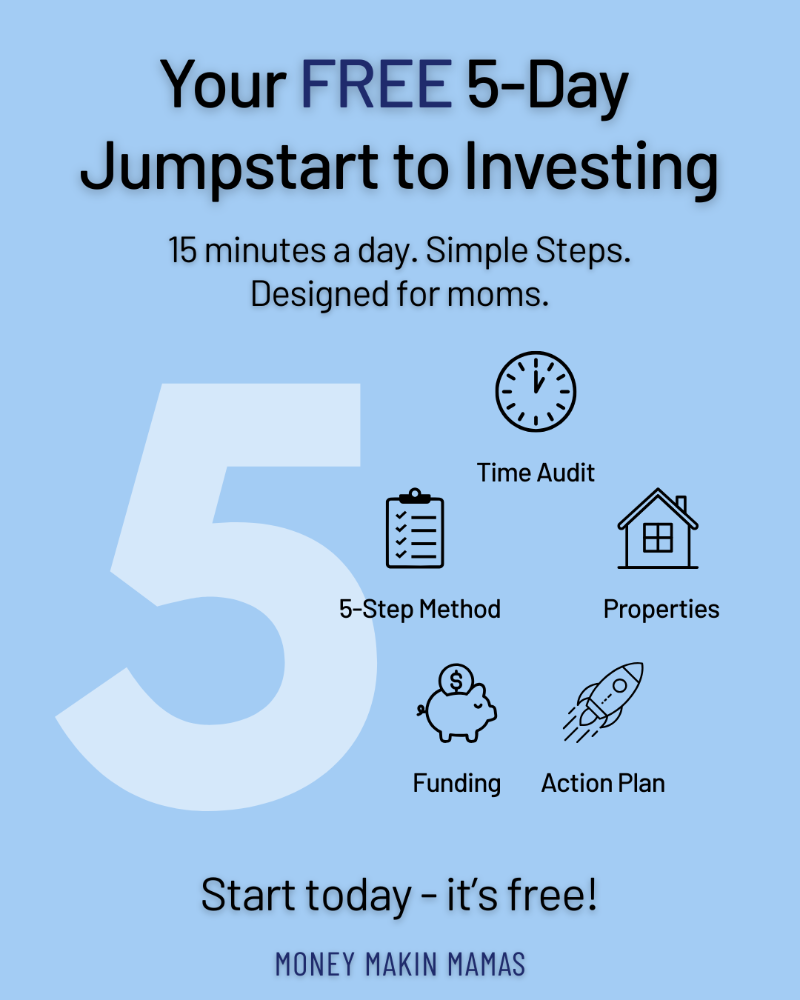Is It a Good Time to Invest in Real Estate - The Rewards vs. The Risks
Sep 18, 2025
Busy mom brain meets big money decisions. If you’re wondering whether real estate investing is actually worth it right now, you’re in the right place. Below, I’ll break down the rewards that build family wealth, the real risks to plan for, and a step-by-step way to decide if now is your time—without gambling your grocery budget.
The Rewards Moms Care About Most
-
Appreciation over time
Well-chosen properties tend to rise in value. Homes we bought ~15 years ago have nearly doubled. The key is choosing growing markets, not just familiar ones. -
Cash flow that supports your life
We focus on single-family rentals and vacation rentals that produce income after the mortgage, taxes, insurance, maintenance, and vacancy reserves. -
Smart leverage
Refinancing or using other people’s money can amplify returns and free up cash to keep building your portfolio—done responsibly, not recklessly. -
Tax benefits
Depreciation, mortgage interest, mileage to properties, and certain expenses may be deductible. Always confirm with your CPA.
The Real Risks (and How We Tame Them)
-
Interest rates
Investor loans typically run higher than homeowner loans. That can squeeze cash flow today, but refinancing later can improve returns. We underwrite deals to today’s rates so we’re not betting on a refi to make the numbers work. -
Overpaying in stagnant areas
If the neighborhood isn’t growing, appreciation can stall. We filter for markets with job growth, infrastructure investment, and healthy rent-to-price ratios. -
Underestimating expenses
Repairs, turnovers, insurance, property taxes, and surprise issues (hello, termites) are real. We budget a healthy reserve on every deal. -
Market and regulatory shifts
STR rules change. Insurance premiums climb. Zoning evolves. We track city council agendas, local news, and MLS trends and have “plan B” exit strategies. -
Over-leverage
Too much debt increases risk. We keep conservative loan-to-value targets and maintain cash cushions.
“Is Now a Good Time?” The Honest Answer
There’s no one-size-fits-all. It depends on your goals, market, and readiness. Here’s what we’re seeing:
-
Days on market are lengthening in many areas, which creates room to negotiate.
-
Price appreciation has cooled to modest, more sustainable levels.
-
Higher mortgage rates are pushing more families to rent, supporting single-family rental demand.
-
Inventory is normalizing, which means more choices and fewer bidding wars.
In our backyard (DFW), we’re not buying in pricier pockets like Frisco at the moment, but we are targeting strong secondary markets 60–90 minutes out where the numbers still work. Your backyard might be different—use the research framework below.
Are You Ready? A Quick Mom-Friendly Readiness Check
-
Credit and debt picture
You don’t need perfect credit, but financing terms matter. Know your score and your debt-to-income ratio. -
Down payment and reserves
You don’t always need 20–25% down, but you do need some capital for inspections, utilities, and closing costs. We never assume zero-down. -
Clear goal
Are you stacking long-term rentals, hunting for cash-on-cash returns, or optimizing taxes? Your strategy flows from your goal. -
Risk tolerance and time
Real estate is a marathon. Can you handle a vacancy or a big repair without panic? Will you self-manage or hire a property manager?
How to Pick the Right Market (Fast)
-
Run a heat map of target zip codes against your criteria: three-bedroom, two-bath homes under a set price cap, rent comps that support your cash-flow target, and low repair intensity.
-
Pull comps with a Realtor partner or tools like MLS, Redfin, Realtor.com, or Zillow.
-
Confirm rents for your exact bed/bath type.
-
Scan development plans: schools, roads, major employers, distribution centers, hospitals, or entertainment hubs (these drive stable demand).
-
Spot the trend: are days on market rising, are there steady price reductions, and is rental demand healthy?
Ten minutes a day for a week is enough to get a confident read on a neighborhood.
Where the Deals Actually Hide
On-market (MLS): public, competitive, but searchable for opportunities. Look for long days on market, repeated price cuts, “handyman” or “TLC” descriptions, and mispriced listings.
Off-market (our favorite): lower competition, more work to source.
-
Pre-probate, probate, foreclosure, divorce, tired landlords, tax delinquent lists
-
Driving for dollars and mailers
-
Realtor, contractor, and investor referrals
-
Local auctions (only if you can buy “as-is” and fast)
Strategy Shifts We’re Making in 2025
-
Leaning into entry-level single-family rentals with stable rent-to-price ratios
-
Expanding to secondary markets where taxes and insurance are manageable
-
Converting former STRs to long-term rentals when nightly demand softens
-
Using creative terms (seller credits, buydowns, rent-backs) to protect cash flow
The Money Makin’ Mamas Mini-Checklist
Use this as your same-day action plan after the video:
-
Define your buy box
Price cap, bed/bath, target rent, max rehab comfort level, preferred school zones. -
Pull three sold comps and three rent comps
Same bed/bath, similar condition, same micro-area. -
Stress test the deal
Underwrite at today’s rate, add realistic taxes/insurance, include 5–8% vacancy and 8–12% maintenance/CapEx depending on age/condition. -
Find one on-market and one off-market lead
MLS search plus one list/drive-for-dollars route. Log both, and send first contact today. -
Map your “what ifs”
If it won’t cash flow at list price, what price or terms would make it work? What’s your plan B if rents dip?
For Our Mom Community: How This Serves You
-
Predictable process so you’re not guessing between school pick-ups and soccer
-
Family-first risk controls that protect your household budget
-
Repeatable criteria that turn confusion into clear yes/no decisions
-
Community support so you’re never doing this alone
Common Questions We Hear
Do I need 20% down?
Not necessarily. There are financing options and creative terms that reduce cash required, but you still need funds for due diligence and reserves.
What if rates drop later?
Great—refi when the numbers make sense. We never buy a deal that only works if rates fall.
What if I buy a “bad” deal?
Exit strategies matter: rehab and reposition, convert to long-term rental, adjust terms with the lender, or sell and redeploy. We cover this in our coaching and on the video.



